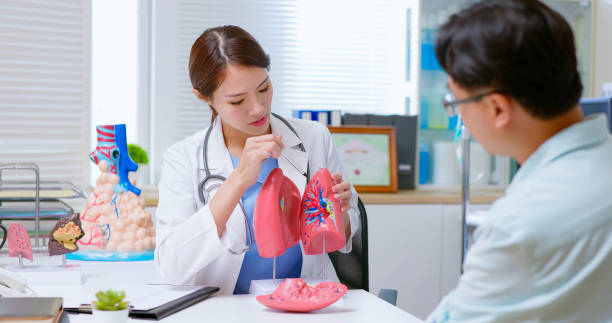Adenovirus is a common type of virus that can cause a range of symptoms, from mild to severe. It is a highly contagious virus that can be spread through close contact with infected people, through contaminated surfaces, or by breathing in the virus from the air. In this article, we will discuss the symptoms of adenovirus and the treatments available for it.
Symptoms of Adenovirus
Adenovirus can cause a variety of symptoms, depending on the type of adenovirus and the person’s age and overall health. Some of the most common symptoms of adenovirus include:
Respiratory symptoms: Adenovirus can cause respiratory infections such as the common cold, bronchitis, pneumonia, and croup. These infections can cause symptoms such as cough, runny nose, sore throat, and fever.
Eye infections: Adenovirus can cause conjunctivitis, also known as pink eye, which is characterized by red, itchy, and watery eyes. This type of adenovirus infection is highly contagious and can be spread through close contact with infected individuals or by touching contaminated surfaces and then touching the eyes.
Gastrointestinal symptoms: Some types of adenovirus can cause gastroenteritis, which is an inflammation of the stomach and intestines. This can cause symptoms such as nausea, vomiting, diarrhea, and abdominal pain.
Skin rashes: Some adenovirus infections can cause skin rashes, which can be red, bumpy, and itchy. These rashes are usually not painful, but can be uncomfortable and unsightly.
Other symptoms: In severe cases, adenovirus can cause symptoms such as fever, muscle aches, and fatigue. Some people may also experience joint pain, headache, and difficulty breathing.
Treatment for Adenovirus
There is no specific treatment for adenovirus, as the virus has to run its course and the body’s immune system will fight it off. However, there are ways to manage the symptoms and make the person feel more comfortable during the course of the infection.
Over-the-counter medications: Over-the-counter medications such as pain relievers, decongestants, and antihistamines can help relieve some of the symptoms of adenovirus. For example, pain relievers can help with fever and muscle aches, decongestants can help clear up a stuffy nose, and antihistamines can help relieve itching and redness from rashes.
Hydration: Staying hydrated is important for fighting off adenovirus. Drinking plenty of water and other clear fluids can help prevent dehydration and flush out the virus from the body.
Rest: Getting plenty of rest is important for allowing the body to recover from adenovirus. It is also important to avoid activities that can spread the virus to others, such as going to work or school while infected.
Humidifier: Using a humidifier in the room can help soothe a sore throat and relieve symptoms of respiratory infections caused by adenovirus.
Eye drops: For adenovirus infections that cause conjunctivitis, using over-the-counter eye drops can help soothe the eyes and reduce redness and itching.
In severe cases, hospitalization may be necessary, especially for children and people with weakened immune systems. Treatment in the hospital may include intravenous fluids, breathing support, and monitoring of vital signs.
Conclusion
Adenovirus is a common cause of respiratory, conjunctivitis, and gastroenteritis symptoms. Most people with adenovirus infections recover on their own without medical treatment. However, some severe cases may require medical intervention. If you suspect you have an adenovirus infection, it is important to see a healthcare provider for proper diagnosis and treatment.

 Home
Home Health
Health Diet & Nutrition
Diet & Nutrition Living Well
Living Well More
More












